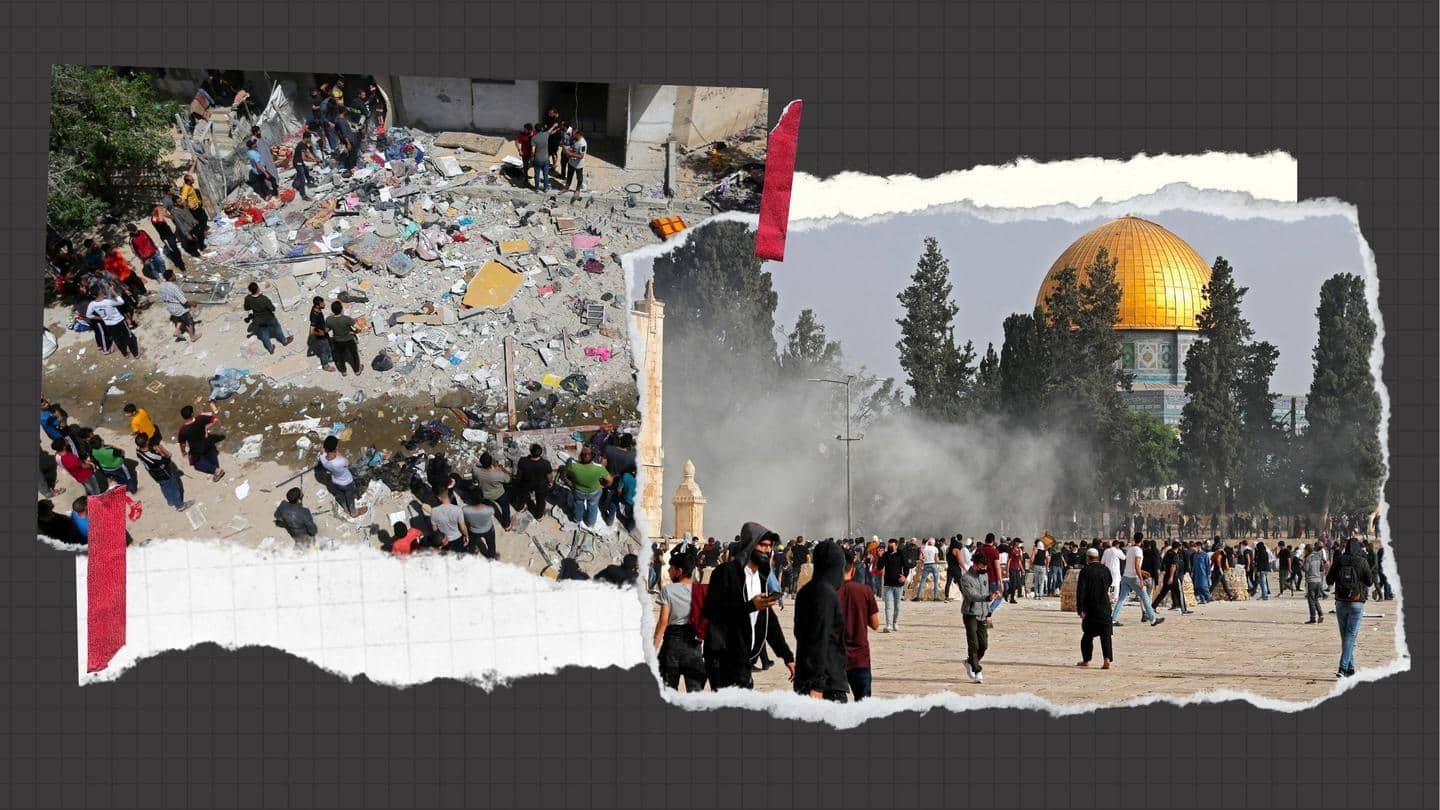
Deeply concerned by violence in Jerusalem: India at UNSC
What's the story
Following the recent flare-up in violence at holy places in Jerusalem, India on Tuesday said it was deeply concerned by such incidents occurring during the holy month of Ramzan.
At the United Nations Security Council (UNSC), during a debate on the Middle East situation, India's Deputy Permanent Representative R Ravindra said the historic status quo of Jerusalem's holy sites must be "respected and upheld."
Context
Why does this story matter?
On Friday, 57 Palestinians were injured in clashes with Israeli police at Al-Aqsa Mosque, East Jerusalem.
Notably, Jews also revere this mosque. As per a long-held status quo, Jews are allowed to visit its compound, but can't pray there.
The recent clashes erupted as Palestinians accused Israeli authorities of restricting Muslim worship at the mosque while not enforcing a proper ban on Jewish prayers.
Previous clashes
Similar clashes at Al-Aqsa took place two weeks ago
To recall, on April 15, similar clashes erupted between Palestinians and Israeli police at the Al-Aqsa Mosque Compound—or Temple Mount for Jews—injuring nearly 100 people.
It was the second Friday during Ramzan, the holy Islamic month.
It also marked the first night of Judaism's week-long Passover holiday and Good Friday.
Following this, UN Secretary-General Antonio Guterres expressed "grave concerns" over the deteriorating Israel-Palestine situation.
Commitment
India stresses on two-state solution
Ravindra said, "All acts of obstruction, vandalism, desecration, which violate the sanctity of holy places, be it in Jerusalem, Nablus or elsewhere, must be unequivocally condemned."
He suggested only a two-state solution is viable.
Ravindra added India is committed "to the establishment of a sovereign, independent and viable state of Palestine living within secure and recognized borders, side by side at peace with Israel."
Twitter Post
India condemns violence in Jerusalem
We're deeply concerned by the series of incidents at the holy places of Jerusalem during the ongoing holy month of Ramzan. The historic status quo of holy places of Jerusalem must be respected upheld: Amb R Ravindra, India's Deputy Permanent Rep at UNSC meeting, on Middle East pic.twitter.com/Fz5qkyybDJ
— ANI (@ANI) April 26, 2022
Israel and West Bank
India concerned over terror, violence in Israel, West Bank
Ravindra further said India was hugely concerned about the terror attacks and violence-related incidents in Israel and the West Bank.
He said, "The recent rocket attack from Gaza and the retaliatory strikes by Israel demonstrates the fragility of the situation and possible escalation."
"We recognize efforts made by Israel, Jordan, Palestinian Authority, and other countries to avert escalation (sic)," ANI quoted him as saying.
Makes an appeal
Acts violating sanctity of holy places must be condemned
Terming the on-ground situation in Jerusalem unfortunate despite these efforts, Ravindra appealed to all stakeholders to put an end to provocations and incitement that may worsen the situation further.
"We extend our support to all steps that are aimed at restoring calm," Ravindra said during the UNSC debate.
He added that any act that violates the sanctitude of holy places must be condemned.
Background
History of Israel-Palestine conflict
Until the collapse of the Ottoman Empire after World War I, Israel and Palestine were part of it.
The population was 87% Muslim, 10% Christian, and 3% Jewish, as per an 1878 census.
However, post-WWI, Britain and France divided territories in the Mid-East.
The British Mandate for Palestine was carved out; the land was later split into Palestine—which now includes Israel and Palestine—and Jordan.